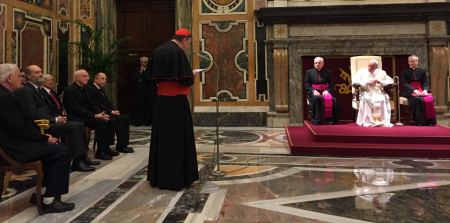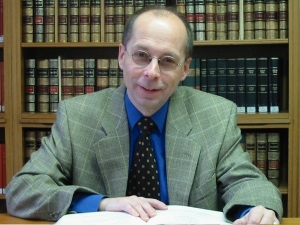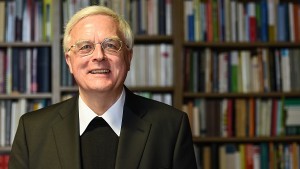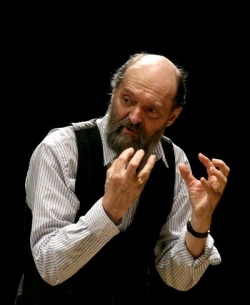Vatican City, 18th November 2017 – “The diakonia of the truth: the high mission to which the three men who receive the Ratzinger Prize dedicated their life, as Benedict XVI, who chose the words of the Third Letter of Saint John called “Cooperatores Vaeritatis”, “Collaborators of the truth” as his episcopal motto. It is the heart of the speech of Pope Francis, who gave the prestigious award this morning to the German Lutheran theologian Theodor Dieter, to the German Catholic priest and theologian Karl-Heinz Menke and to the Estonian musical composer Arvo Pärt, Orthodox Christian. The ceremony – the seventh edition – was held at the Clementine Hall of the Apostolic Palace in the Vatican City.
Pope Francis turned his mind to his predecessor, the Pope Emeritus Benedict XVI, and he invited the Foundation “to go on with its commitment and to foster the study and the theological and cultural research”.
The Pope was glad because the three men who received the Prize come from three different Christian confessions, among which there is the Lutheran. He also agreed with widening the horizons of the Prize to include arts, together with theology and sciences, because Benedict XVI often talked about beauty as a privileged way to reach God.
In his speech, father Federico Lombardi, president of the Joseph Ratzinger-Benedict XVI Vatican Foundation, explained that “the last has been a very intense year because the 90th birthday of the Pope Emeritus attracted a lot of people and many initiatives were born in order to enlighten his cultural and spiritual heritage. Among them there are: the publication of two important volumes of the Italian edition of the Opera Omnia with the support of the Vatican Publishing House; the Theological-cultural Symposium that will be held from 28th November to 1st December at the Catholic University of Costa Rica on the topic “Laudato si’ – La cura della ‘casa comune’, una conversione necessaria all’ecologia umana”. Then, with the support of the “Francisco de Vitoria” University of Madrid, following the idea of the “open reason”, research works and university courses regarding the dialogue among scientific disciplines and philosophy, morality and faith will be awarded.
“We are trying to foster a deep theology and culture that are close to the Church and to the history of our age. That is why it is our tradition to present You these men, who deserve to be awarded for their fruitful work”. Father Lombardi also mentioned and thanked professor Manlio Simonetti, who died in Rome in November 2nd.
Cardinal Kurt Kock, president of the Pontifical Council for Promoting Christian Unity and member of the Scientific Committee of the Foundation, referred on the profile of the award winners of the seventh edition. During the ceremony the Master Arvo Pärt played the song “Pater noster” with the piano that was owned by Benedict XVI. The solo voice was a singer from the Voci bianche choir of the Accademia Nazionale Santa Cecilia. The famous composer dedicated the song to the 60th anniversary of the priesthood of Benedict XVI, held in 2011. During the ceremony, the Choir of the “Sistine” Pontifical Musical Chapel, directed by the Master Massimo Palombella, played short musical pieces.
There are 16 people who received the Ratzinger Prize from 2011 to now. They come from 12 different countries.
Read the speech of Pope Francis
Read the greetings of fr. Federico Lombardi




